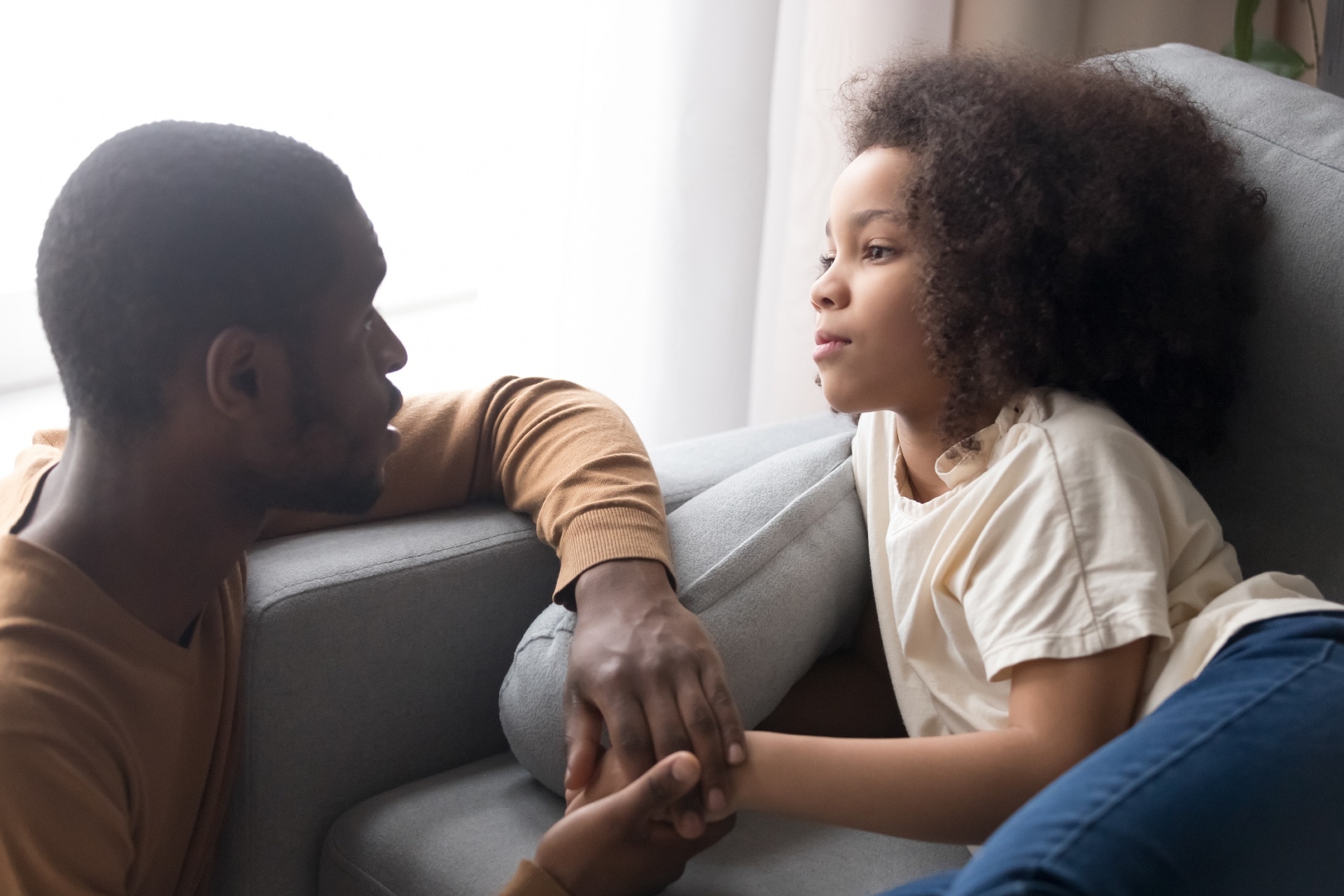Family Life
3 min Read
5 Ways to Help Kids with COVID-19 Anxiety

March 17, 2020
Family Life
3 min Read

March 17, 2020

Every day, there are new developments and updates in the COVID-19 pandemic. As adults, we can learn to sift through the information to assuage our anxieties, but young kids have yet to develop this life skill. So, with more access to information than ever before, between social media and myriad news sources, how can we help our kids to remain calm? Here are some suggestions from Dr. Alok Trivedi, an expert in human behaviour and stress, for helping kids to process information and handle their anxiety in these difficult and unsettling times.
Keep a calm tone. Sometimes it’s not the words you say, but how you say them that determines how a child is going to react. If the tone of your voice is panicky, your child is more likely to become scared. But, if you do your best to remain calm, even if what you say is frightening or anxiety-inducing, they are more likely to stay calm too.
Learn your facts before you speak to your kids. Make sure you understand what’s happening and that you are getting your information from reliable sources. There is a lot of scary misinformation currently circulating, so parents, do your best to get up-to-date facts from credible places before communicating with your kids. (The federal government’s main website, canada.ca, is updating a couple of times a day, with reports and links to more information for all of the provinces.)
Manage your own stress levels. Kids will read their parents’ stress levels and respond accordingly. If you need a moment to unwind, it’s okay to excuse yourself, take a few minutes to regroup and get yourself together before interacting with the kids again. After your own stress levels are in check, then you can focus on making sure your children are handling it well, too. Signs that the stress might be too much for them include changes in appetite, inability to sleep, acting fearful or anxious, wanting to be left alone and a lack of excitement for things they usually enjoy.
Be supportive. This stress is very real for kids and adults alike. Never say things like, “Just get over it” or “You’re overreacting” (imagine if someone said that to you in these uncertain times!). All anxiety and fear is valid and should be treated as such. If your child’s worry becomes more serious and doesn’t subside, have a chat with your family doctor on next steps.
Reduce stress by being healthy. The best way to reduce stress is to take appropriate measures to reduce the spread of the COVID-19. Don’t just encourage your children to wash their hands and not touch their faces, but let them know that by doing so, they are minimizing their chance of coming down with the virus (and doing their part to avoid the spread to those who are most susceptible). Healthy behaviours will lead to stronger mental health and well-being.
Photo from iStockphoto.